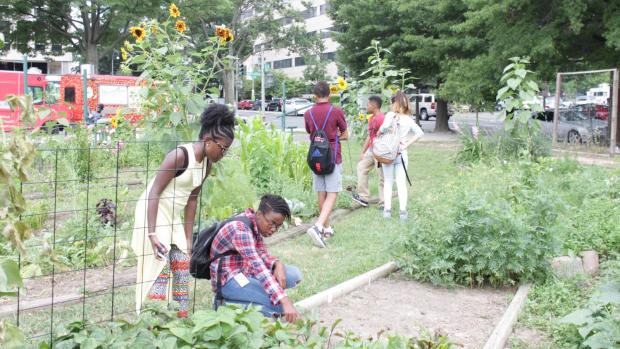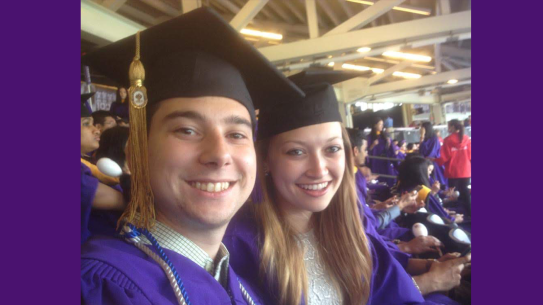Open Data Kids Camp
Tandon’s Governance Lab partners with the United States Department of Agriculture to teach kids data science skills by doing projects to benefit Agriculture, Food Safety, and More

For the second summer in a row, the Governance Lab, in partnership with the United States Department of Agriculture (USDA), mounted a two-week camp for middle and high school students in July. Forty students, ages 11 to 17, created projects using USDA agricultural and food safety data and learned both new data science skills and how to apply them for social good.
This year’s focus was on food safety, forestry, and urban agriculture, and the students, who convened at USDA headquarters in Washington, D.C., mapped urban gardens around the National Mall, enjoyed hands-on lessons about nutrition and food safety, and took a tour of the capital’s largest green rooftop.

Megan Smith, the United States Chief Technology Officer (CTO) in the Office of Science and Technology Policy, attended student presentations and imparted insights into the importance of data in today’s world.
First, however, they took an intensive look at data science—with the GovLab curriculum calling for them to learn what types of issues can be explored through data, the process of gathering data (using such techniques as observation, interviews, focus groups, and surveys), the problems of missing data, and more. The students learned that researchers use data to study areas as disparate as what makes a song a chart-topper and (more germane to the theme of the camp) what monetary costs are associated with foodborne illnesses. The USDA has said that they hope to inspire future data scientists, data analysts and maybe even some future farmers with the program.
“As more government data becomes available for re-use and redistribution – what’s known as open data – we need more people to be able to use that data to solve hard problems,” said Professor Beth Noveck, the GovLab’s Director. “The Open Data Summer Camp aims to get kids excited about data and about public service and, hopefully, inspire a next generation of more data-literate public servants.”
Along with proud family members, USDA officials, and sponsors, Megan Smith, the Chief Technology Officer of the Office of Science and Technology Policy at the White House, attended the final student presentations and praised the young participants for their hard work. All that work paid off; campers left their sessions with a solid understanding of the importance of literature review when tackling a topic, the difference between qualitative and quantitative data and research methods, the value of mapping, various ways in which to visualize data – and, as a bonus – some new friends.




